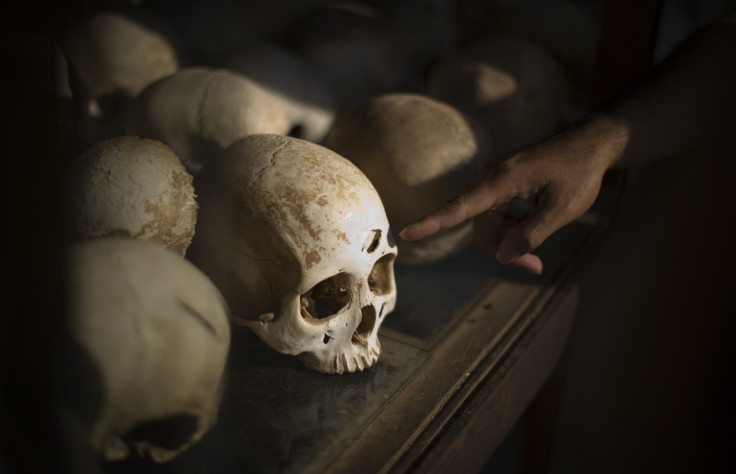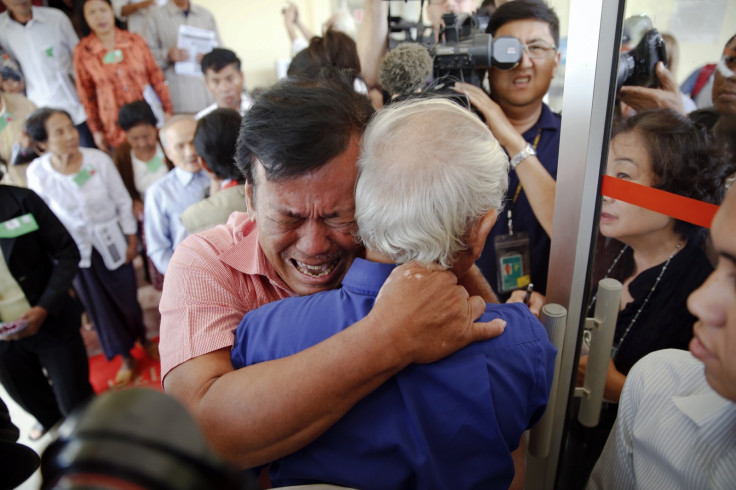Khmer Rouge War Crimes: What Was Cambodia's 'Year Zero'?

Following the sentencing of two senior Khmer Rouge leaders - Nuon Chea and Khieu Samphan - to life imprisonment for crimes against humanity, IB Times UK looks at 'Year Zero,' the totalitarian fantasy of the barbaric regime in which society was 'restarted'.
The Khmer Rouge, a guerilla movement which came to power in April 1975 in place of the Lon Nol government, is distinctly remembered for orchestrating the Cambodian genocide.
Under Pol Pot, a leader educated in France and an admirer of Maoist communism, the Khmer Rouge attempted to reconstruct the entire country of Cambodia, destroying its cultures and traditions to be replaced by a new revolutionary culture from scratch - termed 'Year Zero'.
This term alludes to Year One of the French Revolutionary Calendar, which was established after the abolition of the French monarchy in 1792.
Through the social engineering of 'Year Zero', the government moved people out of Cambodian cities, such as Phnom Penh, and into the countryside for a 'reeducation program' where all were expected to partake in rural work.
What followed was the purge of many teachers, artists and intellectuals, those opposed to the 'reeducation system', as well as Cambodians who were believed to be associated with previous governments.

Five years of civil war had preceded the Rouge's rise to power, but the population's celebration did not last long as government workers, military officers, religious figures and public servants linked to the Lon Nol government were rounded up and summarily executed.
Essentially, anyone who was deemed a threat to the regime was executed and over half a million lost their lives in the Khmer Rouge's 'killing fields' as Pot sought to 'purify' the country.
The despot renamed the country the 'Democratic Kampuchea' and sought to create a self-sufficient agrarian state. Through this insistence of absolute self-sufficiency, for goods such as medical supplies, many Cambodians died from diseases that were preventable, such as Malaria.
Currency, schools and religion were all abolished while newspapers, markets and private land were outlawed.
Overall, nearly two million people lost their lives from overwork, torture, execution or starvation following 'Year Zero' before the Khmer Rouge was overthrown by Vietnamese troops in 1979.
Cambodia's current prime minister, Hun Sen, himself defected from the Khmer Rouge regime.
Those who lived through the murderous 'Year Zero' and lost their loved ones face a painstaking wait for justice.
The two senior leaders, one a right-hand man of Pot and the other the regime's head of state, face a second trial on charges of genocide which is expected to last for several years.
© Copyright IBTimes 2025. All rights reserved.






















